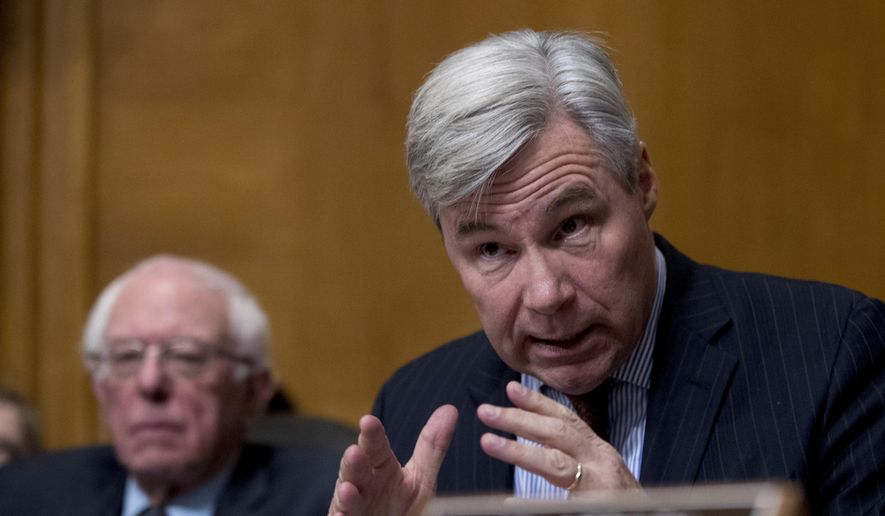A Senate Democrat warned the Supreme Court this week not to hear a case involving a New York City gun control law, saying the GOP-appointed majority is too tainted to deliver a valid ruling.
The stunning filing by Sen. Sheldon Whitehouse, Rhode Island Democrat, argues the court has become too partisan and has produced too many ideologically divided rulings, damaging the public’s trust in the federal judiciary.
He warned of looming changes the political branches could force on the court should it fail to show restraint.
“The Supreme Court is not well. And the people know it,” Mr. Whitehouse argued in his brief. “Perhaps the court can heal itself before the public demands it be ’restructured in order to reduce the influence of politics.’ Particularly on the urgent issue of gun control, a nation desperately needs it to heal.”
He complained that secret interests are attempting to subvert justice at the court, pointing to a number of amicus briefs filed on behalf of Second Amendment rights advocates that he said are puppets of the National Rifle Association, the Federalist Society and other conservative organizations.
“Out in the real world, Americans are murdered each day with firearms in classrooms or movie theaters or churches or city streets, and a generation of preschoolers is being trained in active-shooter survival drills,” he wrote.
He continued: “In the cloistered confines of this court, and notwithstanding the public imperatives of these massacres, the NRA and its allies brashly presume, in word and deed, that they have a friendly audience for their ’project.’”
The case involves a New York City system that set up two types of licenses for handgun possession: one that allowed carry outside the home, and the other that only authorized possession at a home or business.
The city had an ordinance that prevented those with the home-only license from transporting their weapons to second homes or shooting ranges outside the city.
Gun-rights groups challenged the ordinance, but lower courts sided with the city.
The gun-rights groups have asked the Supreme Court to hear the case, but New York, fearing a loss that could turn into a major pro-gun precedent, scrambled to undo its ordinance.
Mr. Whitehouse and a host of other Democrats and liberal activist groups are now pleading with the high court to refuse to hear the case, arguing New York has made it moot.
They fear a 5-4 ruling would expand on the last 12 years of pro-gun rulings.
Mr. Whitehouse, in his brief, argued a series of similar rulings with “bare partisan majorities” has damaged the public trust in the federal judiciary.
He pointed to a Quinnipiac poll from May, which found 55% of Americans said the court was “mainly motivated by politics.”
He did not elaborate on what the public pressure for a “restructured” court might look like.
But several 2020 Democratic presidential candidates have suggested they would propose expanding the high court to as many as 15 justices if they win the White House, then fill those seats with liberal members to counter the GOP’s current 5-4 majority in appointments.
The idea of packing the court was rejected by its most senior Democratic appointee, Justice Ruth Bader Ginsburg, last month.
“Nine seems to be a good number, and it’s been that way for a long time,” Justice Ginsburg said in an interview with NPR.
Mr. Whitehouse, a member of the Senate Judiciary Committee that vets federal judges, pointed out in his brief that Justice Brett M. Kavanaugh, confirmed to the court last year, was backed by the NRA during his confirmation process.
Judiciary Committee Chairman Lindsey Graham, South Carolina Republican, rejected Mr. Whitehouse’s arguments on Twitter, saying the high court is just fine.
“The Supreme Court is well. The American political system is the sick patient (Kavanaugh hearings). The Court is moving center-right and getting out of the left ditch. That’s exactly where the country is headed!” Mr. Graham posted on Twitter.
• Alex Swoyer can be reached at aswoyer@washingtontimes.com.




Please read our comment policy before commenting.